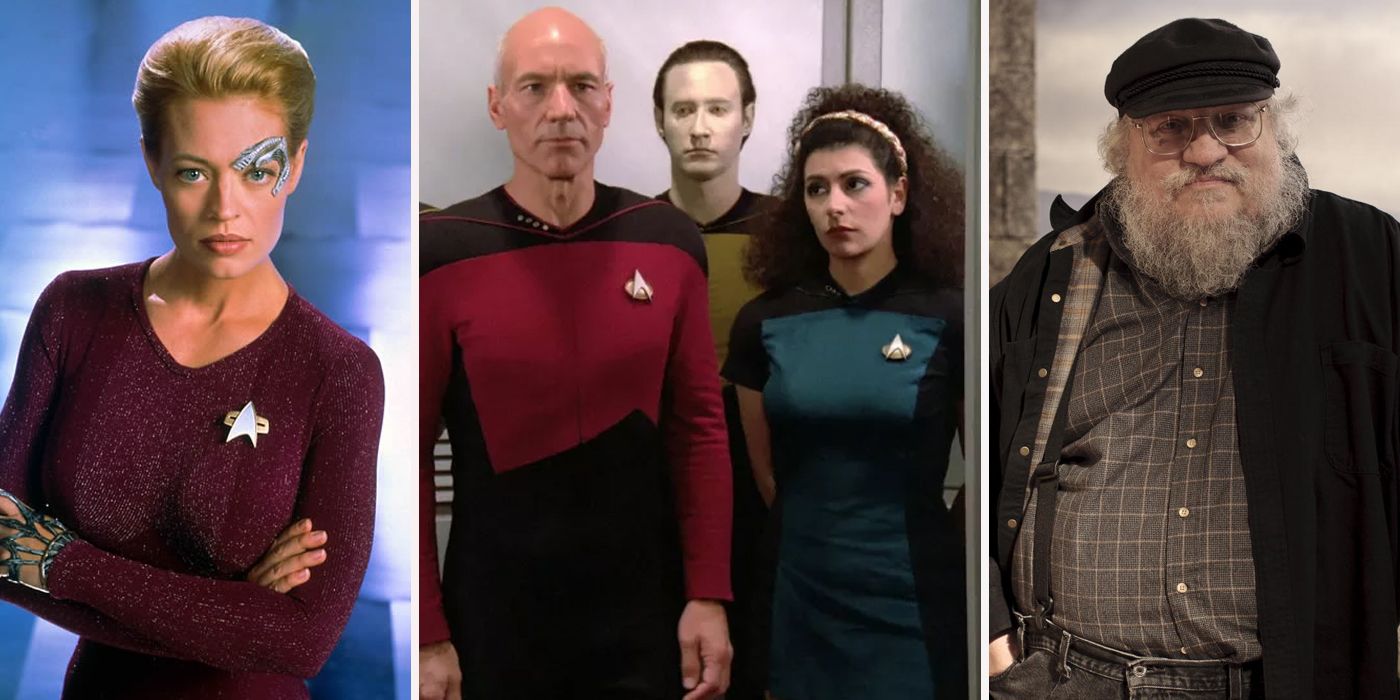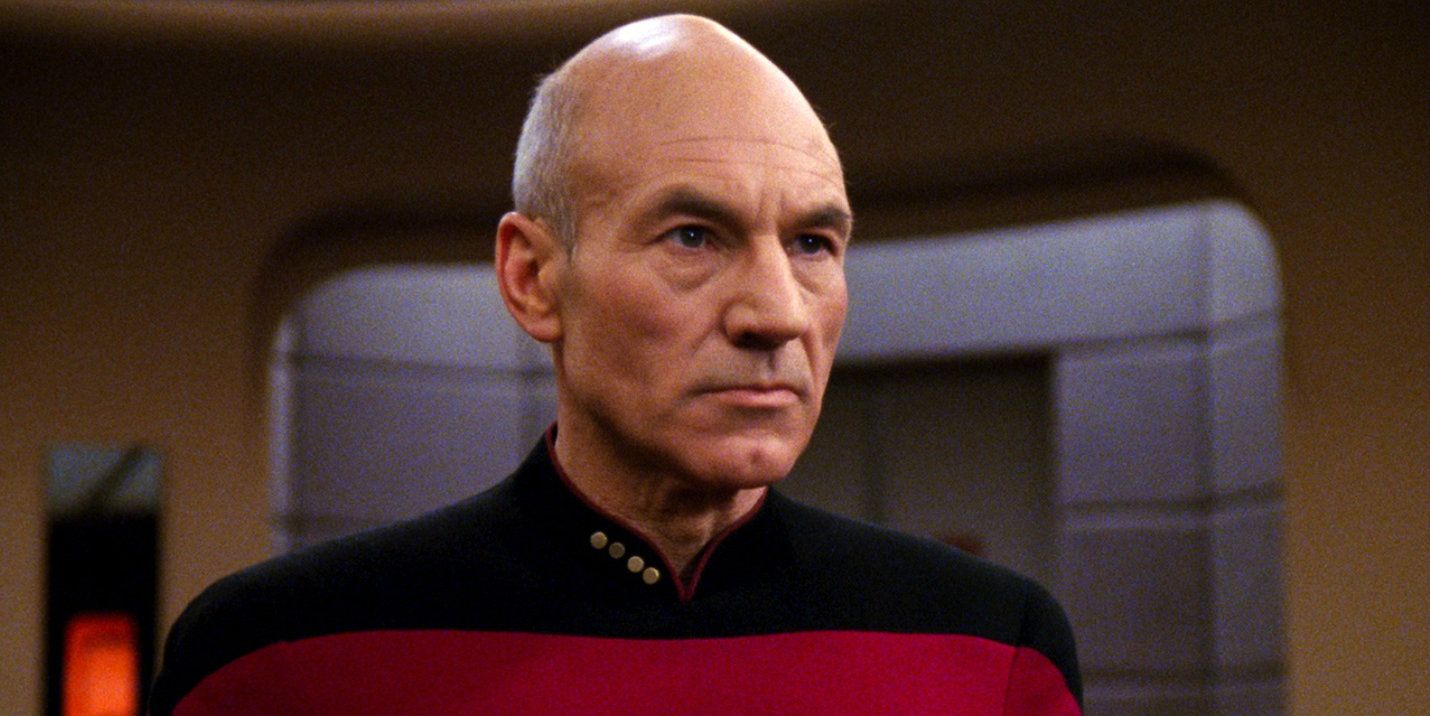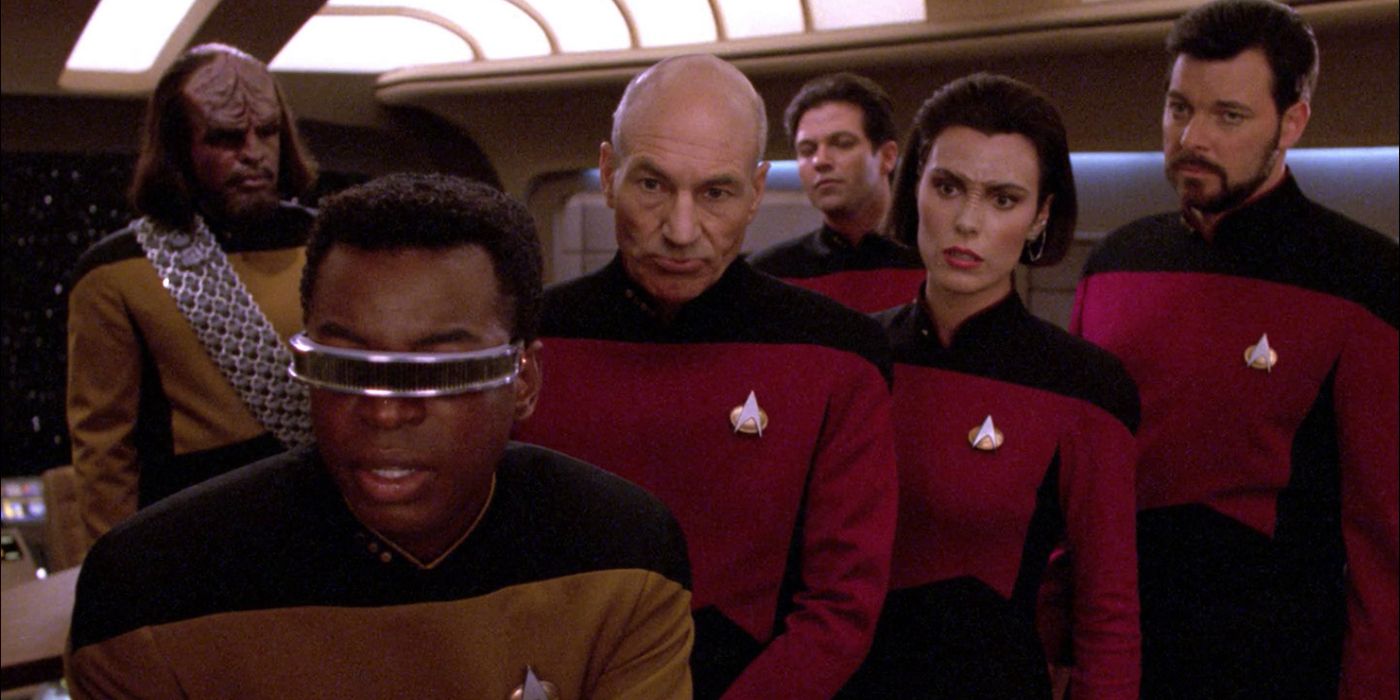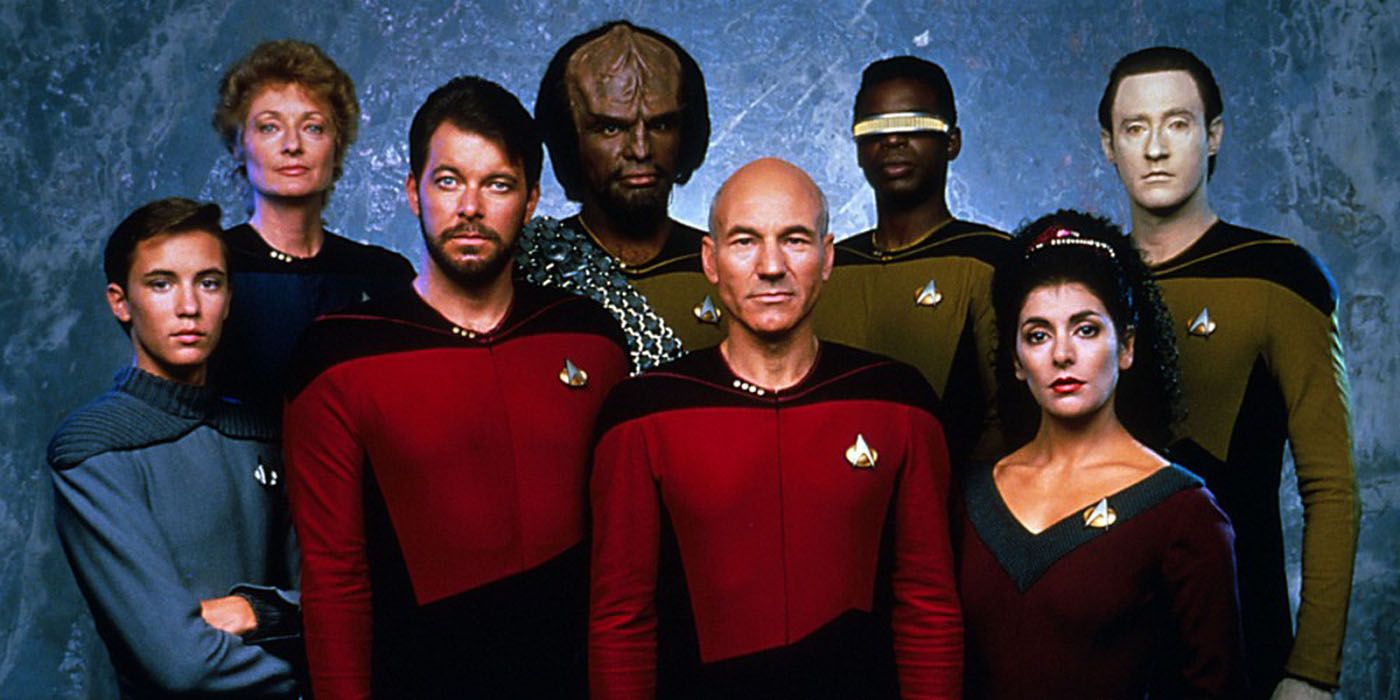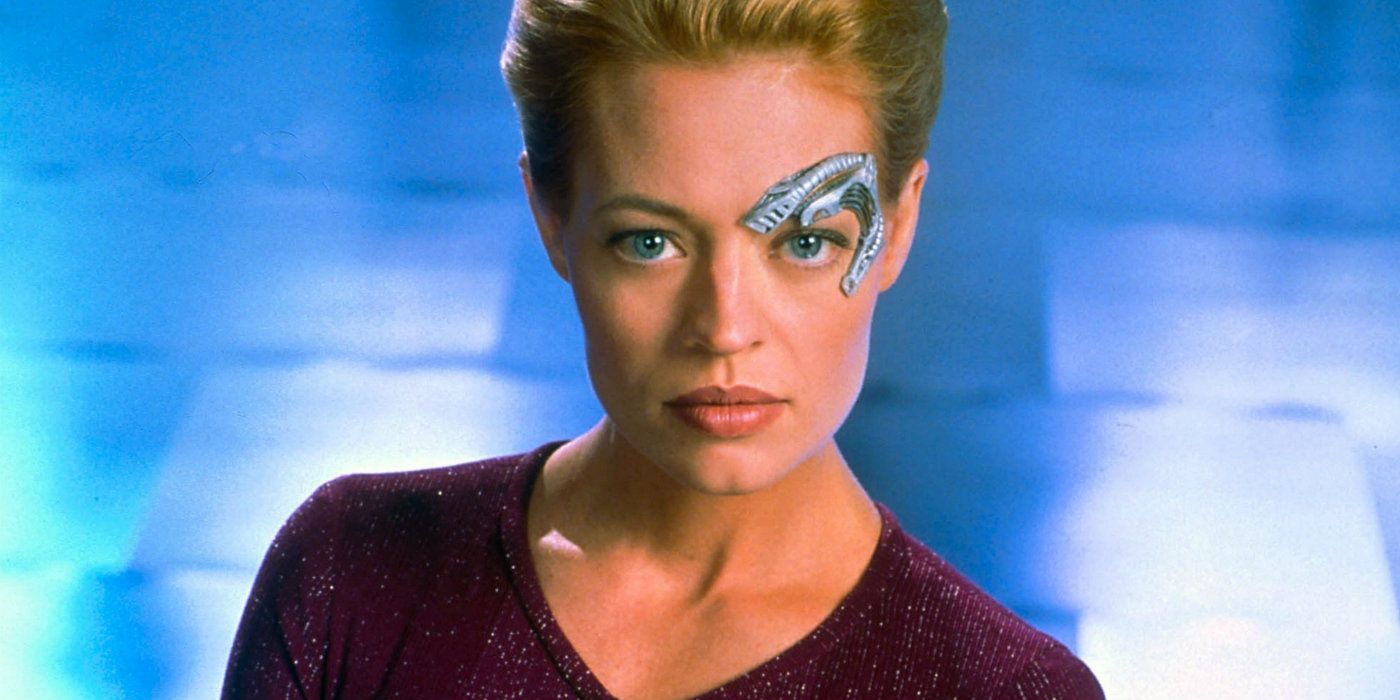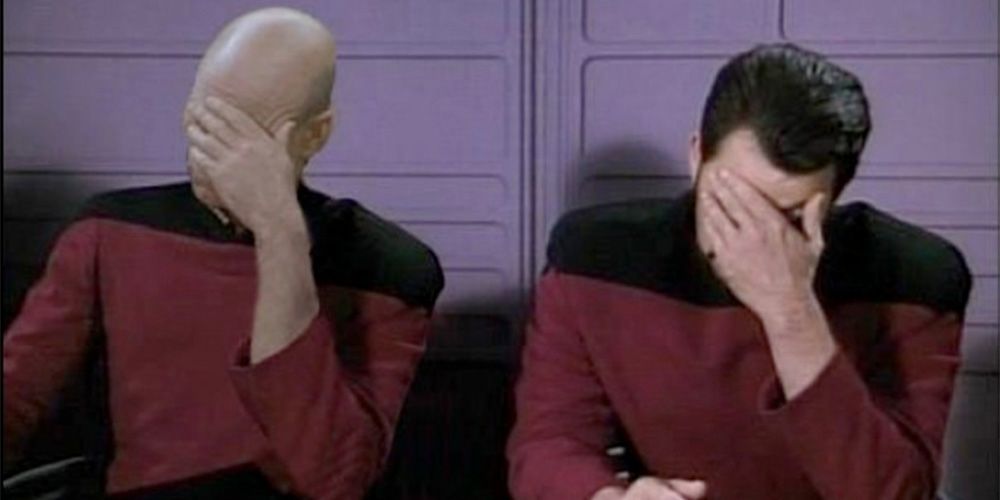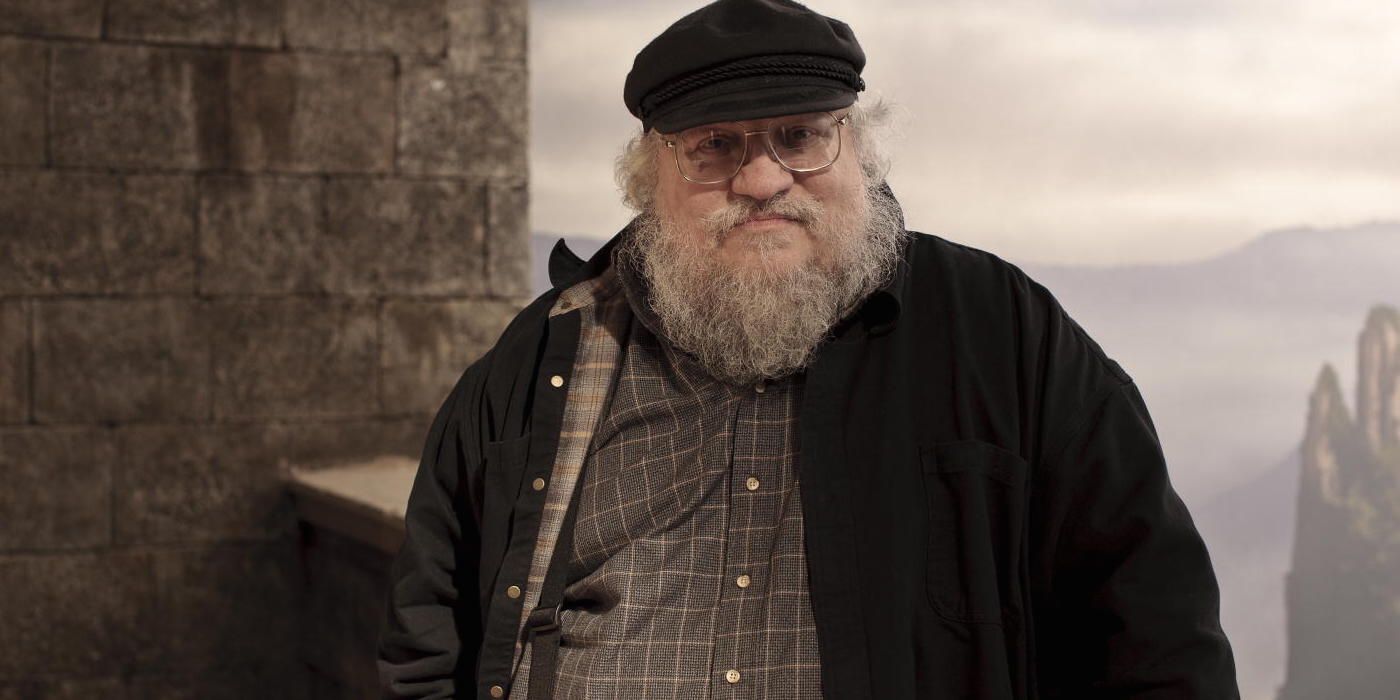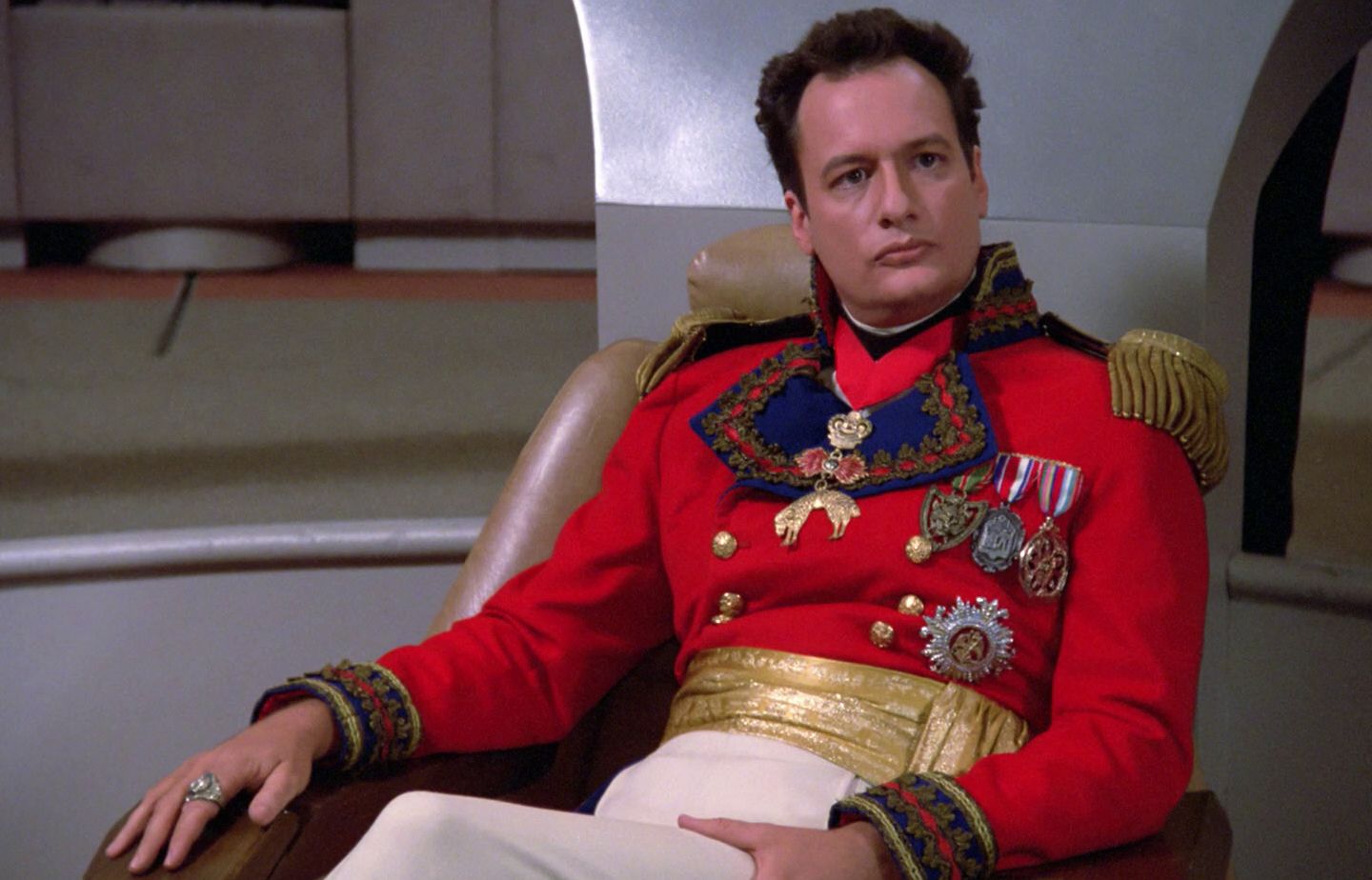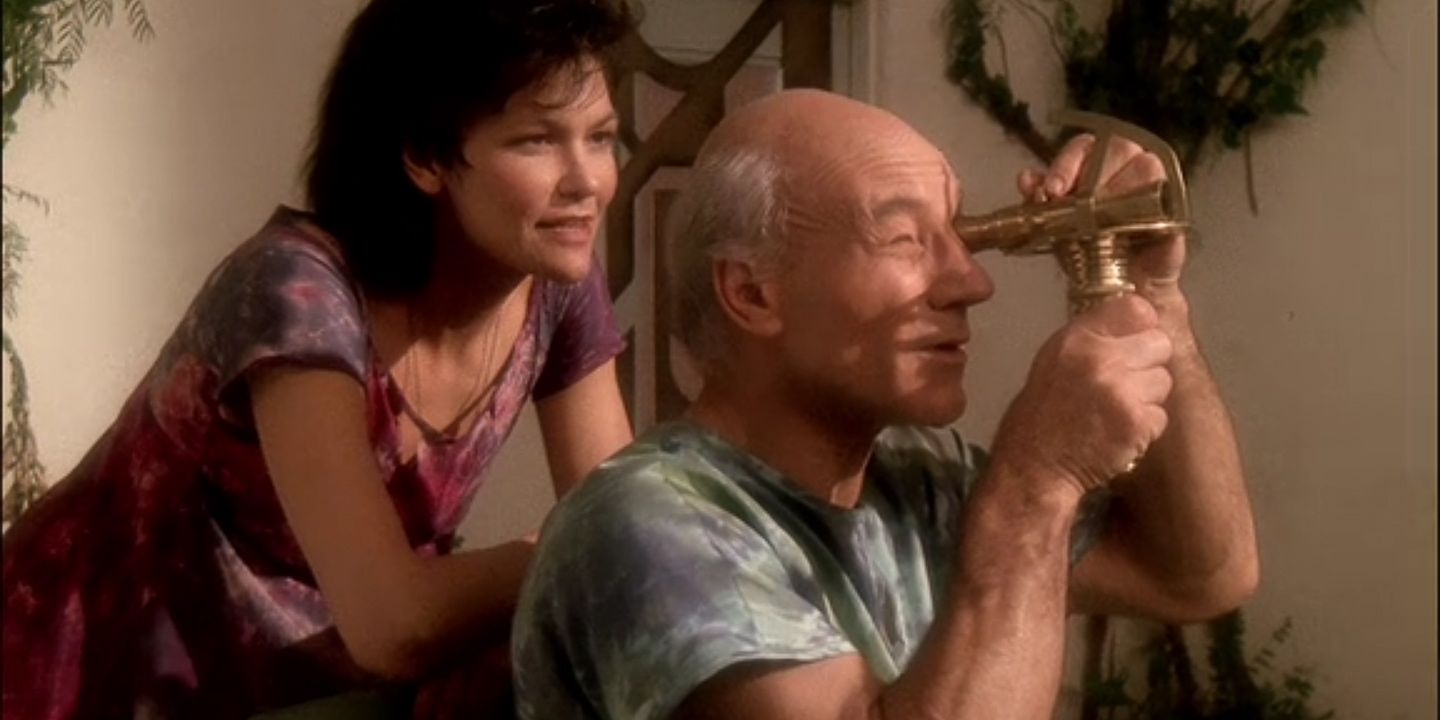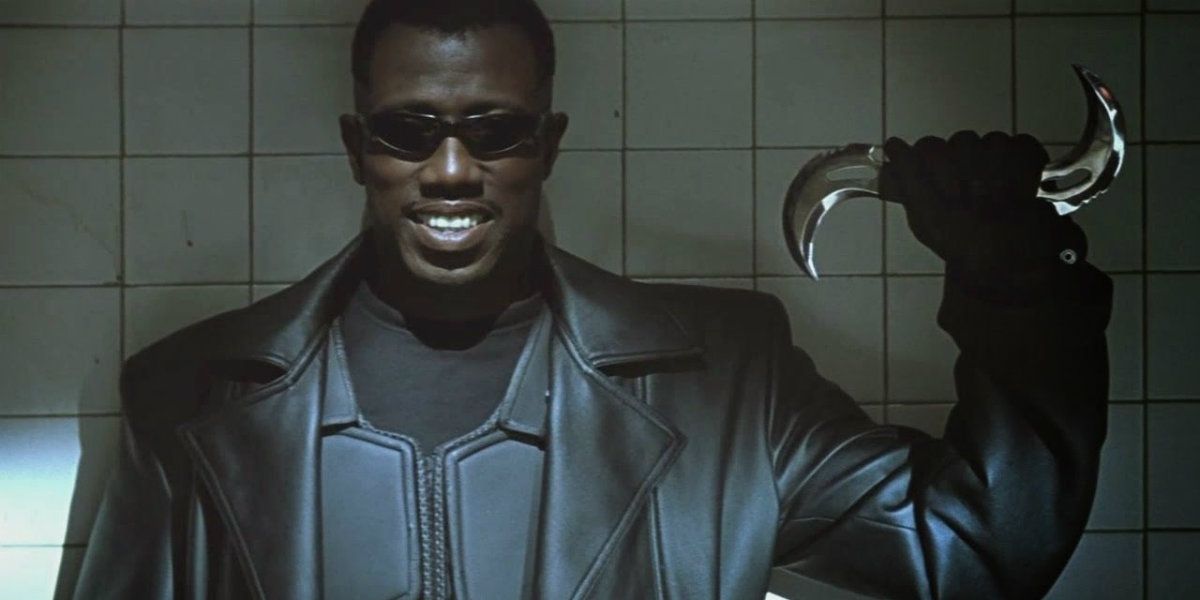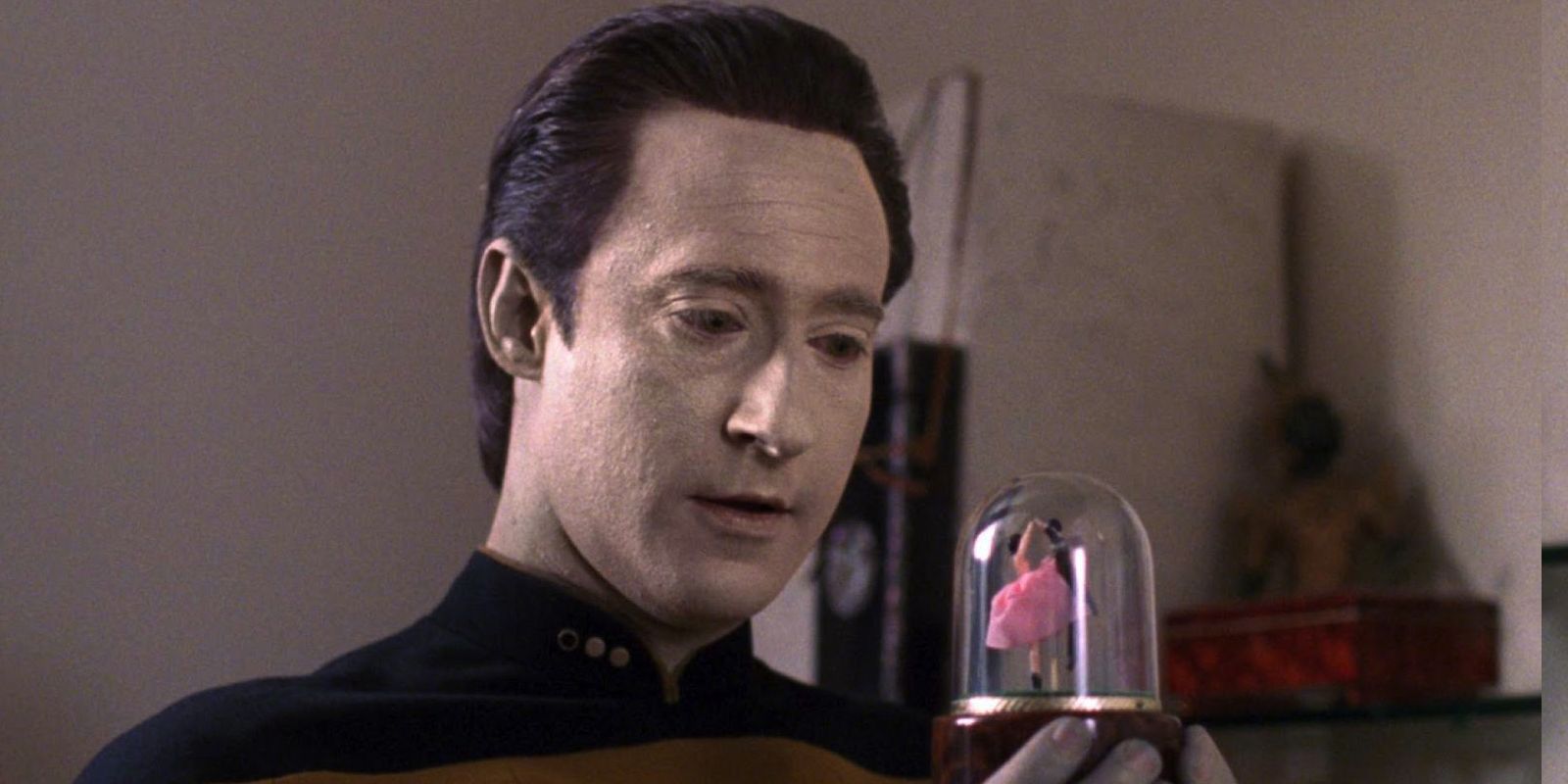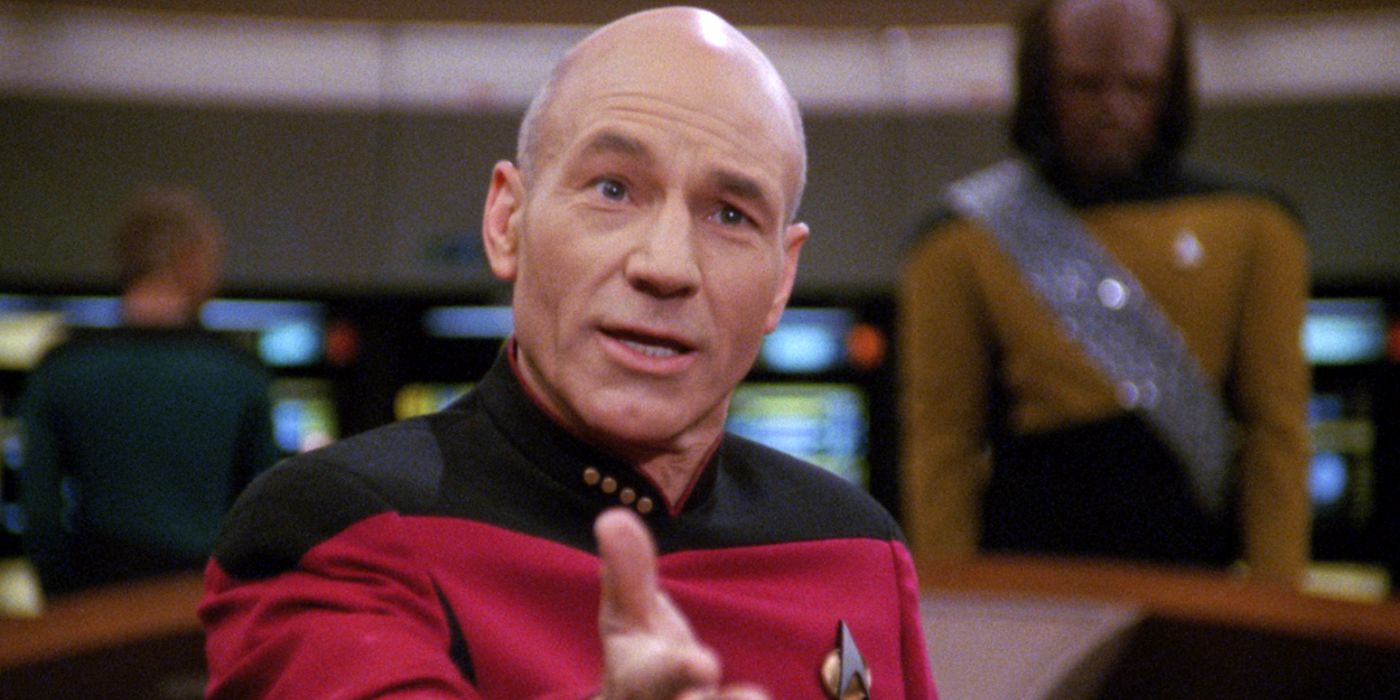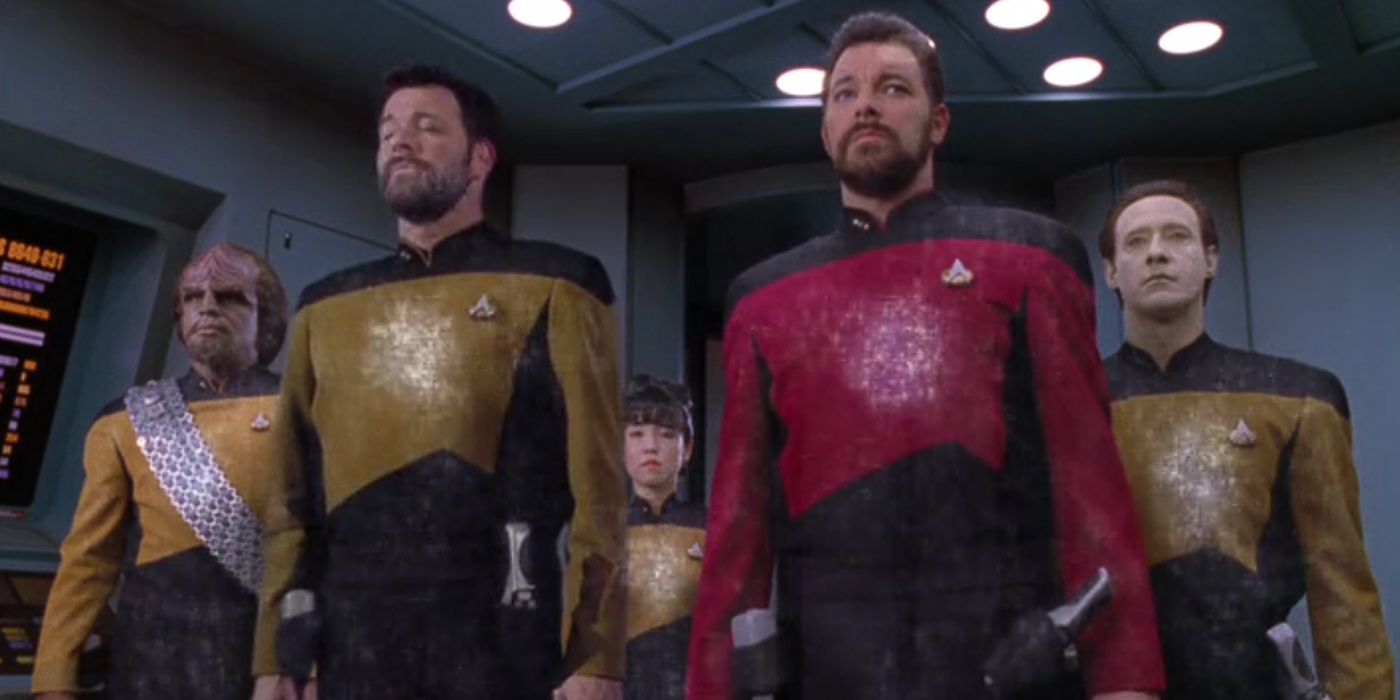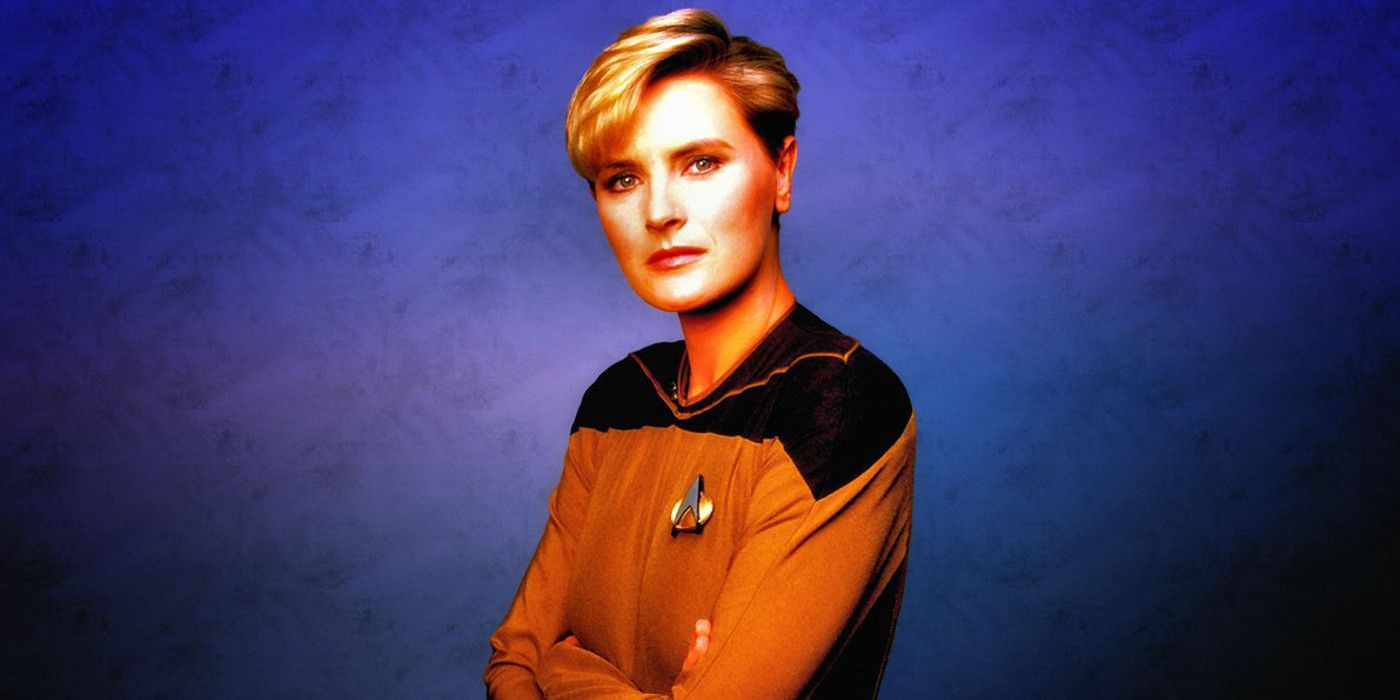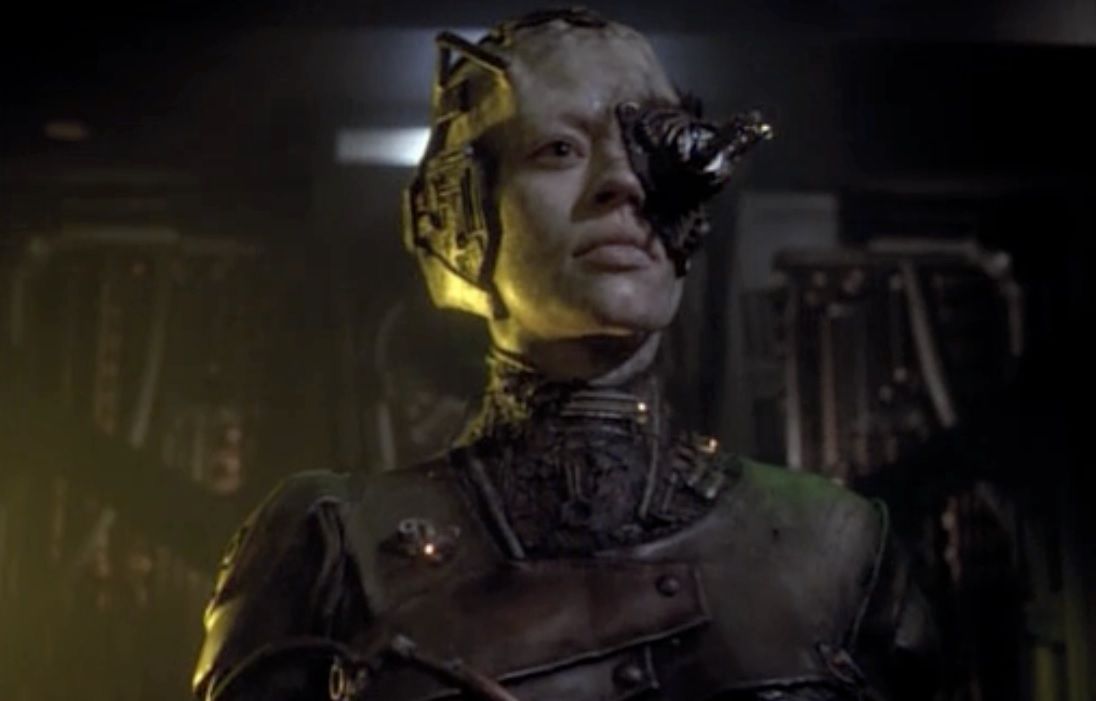Star Wars may be blowing up everybody's social media feeds right now, but it's not the only infamous science fiction series out there. Star Trek has just as rabid (if not more so) of a fanbase.
With over 700 episodes spanning 31 seasons of seven different series, not to mention the 13 different Star Trek movies debuted over the years, there's something for everyone to love. Add to that the massive cast featuring major Hollywood stars spanning multiple generations, and it's no wonder Star Trek has successfully captured lightning in a bottle over and over again.
However, what if things had been different? What if we had never met the infamous Captain Picard? What if Wesley Snipes had dared to go where no man had gone before? What if the show had been more progressive than it was? How would our pop culture have been irretrievably changed?
We may never know the answers to those questions, we do at least have an idea of how different one of the franchise's most beloved series almost was.
Writer's strikes, cast feuds, and intense body odor-- there was seemingly no end to the obstacles forcing big changes to The Next Generation's potential storylines.
Here are the 15 Ways Star Trek: The Next Generation Was Almost Way Different.
Gene Roddenberry Super Did Not Want Captain Picard Or Patrick Stewart
Star Trek creator Gene Roddenberry did not like Patrick Stewart. Actually, that's putting things pretty lightly. Star Trek creator Gene Roddenberry hated Patrick Stewart.
He didn't want Stewart to play Captain Picard, he didn't even want him to audition for the part. The creator famously described Stewart as both "too old and too bald" to play the iconic captain.
Roddenberry pushed heavily for Yaphet Kotto to play the ship's captain. While we can't imagine The Next Generation without Stewart's devilish smile and never-ending sense of fun, but it's hard to actually argue with Roddenberry on this one.
Had Kotto been cast in the role, he would have given the Star Trek franchise their first black captain decades earlier. There's just nothing wrong with that.
The Show Almost Had Two Gay Characters
Writer David Gerrold felt the world had gone long enough with LGBTQ+ representation in science fiction and he wanted to use The Next Generation to change that.
He had worried that Roddenberry would be opposed to the idea but was pleasantly surprised by the showrunner's enthusiastic reaction. Roddenberry fully agreed with Gerrold and lobbied hard to put two gay characters in the show.
Gerrold had gone as far as to plan an episode thinly veiled with an AIDS allegory in which the history of a gay couple's relationship would be discussed casually and without fanfare.
Unfortunately, the episode would become a point of contention for the crew, with some believing viewers would be offended by the progressive content, and was ultimately dropped from the script.
Gene Roddenberry Thought There Were Too Many Female Characters
Despite Roddenberry's incredibly progressive desire to have a non-white captain lead the Enterprise and to include gay storylines on the show, the showrunner was incredibly closed-minded in other areas...women, mostly.
According to Deanna Troi portrayer Marina Sirtis, she was nearly fired from the show because Roddenberry simply felt there were "too many women" hanging around the set.
Despite Troi becoming somewhat of a cult favorite, her character was the first female on the chopping block. Gates McFadden's enjoyed job security as the ship's doctor, a necessary job.
Denise Crosby had the role of security chief on lockdown, another job essential to the ship's operation. Roddenberry felt the crew could do without a psychologist, which left Sirtis living in a constant state of fear throughout Season 1.
Troi stuck it out and Sirtis would ultimately become the only original female to remain on the show.
Yar And Troi Switched Actresses
Despite the tension (and sheer panic) Sirtis had to endure during the first season, she must have been thanking her lucky stars that things worked out the way they did.
In an alternate universe, it could have been McFadden who won the role of the token female character. Initially, McFadden and Sirtis auditioned for opposite roles.
The execs were incredibly impressed with both of them, but they felt that they were just not quite a perfect fit. They asked the actresses to come in and audition again, this time reading for the roles that they would ultimately end up inhabiting.
How would things have been different had Sirtis and McFadden ended up in their original roles? Would the ship have retained their doctor with Sirtis in the role? Or was the psychologist always destined to become an integral part of the series? We may never know.
Troi Was Almost Replaced With Seven Of Nine
No, Seven of Nine was not a Next Generation character, but she could have been. Star Trek: Voyager and Star Trek: The Next Generation overlapped by a couple of years.
When Sirtis went into negotiations for the tenth Star Trek franchise film, Star Trek: Nemesis, she got a stark reminder that there were bigger female sci-fi characters at the studio's disposal.
The studio refused to give Sirtis the level of pay she desired, so they threatened to replace her with the then rising star Jeri Ryan, who played Seven of Nine on Voyager.
Despite her intense fear of losing her job in the early years of the series, by this point, Sirtis felt comfortable in her job security and informed the studio that Ryan would never consider doing the film for so little pay.
Patrick Stewart Almost Got The Entire Cast Fired
Patrick Stewart is a whimsical sprite, but that doesn't mean he doesn't take his art seriously. In the early seasons of The Next Generation, Stewart was a taskmaster, letting loose on the rest of the cast if they got a little too silly and laidback while filming. However, that didn't keep him from refusing to do his own job from time to time.
Stewart utterly refused to say an early Season 2 line, showrunner Maurice Hurley lost it. His immediate reaction was, "Fire them all." Yep, not only was Stewart's job on the line, Hurley was prepared to take out the entire cast and replace them all.
Then head of Paramount Television, John Pike, met Stewart for lunch and doubled down on the threat of firing the iconic actor and Stewart gave in.
George R.R. Martin Almost Wrote For The Show
It's hard to believe it now, given the insanely unprecedented success of Game Of Thrones, but obtaining writing gigs was once difficult for George R.R. Martin.
Despite being responsible for one of the most popular and iconic series in television history, Martin was totally shot down when he tried out for a job as a writer for The Next Generation.
It's not that Martin was totally unqualified, he had been in the business for quite some time and had had a hand in the well-received The Twilight Zone reboot.
Martin made the fatal mistake of calling The Next Generation a science fiction series, which failed to impress an unnamed producer who felt their little show was telling human stories, not sci-fi ones. Martin's mistake cost him the job, but it certainly didn't hurt his career.
One Of The Writers Wanted Lots Of Time Travel Elements
Despite the show's producer adamantly denying its clear science fiction roots, at least one writer wanted to steer even harder into the skid. Brannon Braga admitted that he felt a little out of his depth while writing some of the show's more traditional episodes.
He had wanted to add lots and lots of time travel elements, and a little bit of horror, into the show. Ironically enough, Braga took inspiration directly from The Twilight Zone.
Roddenberry refused to allow time travel plots into the show, he maintained that they were too unbelievable and would ruin the credulity of the show.
To get around this little issue, Braga introduced the time loop, which saw characters reliving events and allowed Braga to experiment while staying true to Roddenberry's vision.
One Of The Alternate Universe Episodes Almost Had A Sequel
Similar to the banned time travel elements, the episode "The Inner Light" provided The Next Generation writers the ability to experiment with an alternate universe.
In this world, Captain Picard lived a rich and full life with his true love, Eline, while attempting to stop the destruction of a doomed planet before being whisked back to his reality just a few minutes after he left it.
"The Inner Light" writer Morgan Gendel had hoped that these life-changing events would resonate with Picard throughout the entire series (though, they never really did) and had even dared to imagine that there might have been a sequel episode one day. Picard would have come across his "wife" years later only for her to not recognize him at all. Aw, sad.
A Lot Of Crazy Big Actors Were Once Considered For The Cast
Clearly, the cast, crew, and creator of The Next Generation had a lot of other plans in mind that never actually came to fruition. One of said plans was entirely different cast to begin with.
Despite Patrick Stewart being so hated by Roddenberry, he was always on the shortlist to play Picard, but Patrick Bauchau and Roddenberry's favorite Yaphet Kotto were heavily considered, too.
Titanic actor Mark Lindsay Chapman was a "lock" for Data, and Miami Vice's Michael O'Gorman seemingly edged out Jonathan Frakes for Riker.
While LeVar Burton had always been top pick for Geordi LaForge (and rightfully so) icon Wesley Snipes had at least cracked the list. We can't imagine how different this show would have been had this actually come to fruition.
Patrick Stewart Auditioned To Play Data
Even though Gene Roddenberry did his best to prevent Patrick Stewart from joining the cast, he was liked enough by the show's producers that he ended up being asked to audition for not one, but two different parts.
Stewart had initially auditioned for to play the role of Data, but the producers felt he was much more suited to play the captain and eventually persuaded Roddenberry to give him a real chance.
Stewart initially wanted nothing to do with the role of Picard, but his agent convinced him The Next Generation would be an utter failure considering the series predecessor had been canceled and the films were less than popular. He agreed to take the job on the false pretense that it would be temporary.
Captain Picard Almost Had A Very Heavy French Accent
This could very well be the weirdest thing to ever be considered on Star Trek: The Next Generation. It doesn't seem so shocking when you really stop to think about his name, Jean Luc Picard, but, yes, the captain was French. If you look really closely, you may just find that Picard's French roots are even more obvious than they may seem.
The producers really couldn't agree if Stewart should portray Picard with a French, British, or American accent...so, they asked him to do a reading with all three.
Stewart recited the iconic line, "Space, the final frontier" with the desired accents, but the French angle was eventually dropped. Rumor has it, you can still hear the French bleed through in Stewart's performance from time to time.
Riker Was Almost Replaced With An Alternate Version Of Himself
Despite being so far down the list of potential Rikers, and the volatile workplace in general, Jonathan Frakes was never really in danger of losing his job. In fact, the writers loved him so much they created a second one. I
n a crazy mishap involving an abandoned outpost and a beaming accident, a Riker clone was accidentally created and the two Lieutenant-Commanders ended up meeting in person.
The second Riker, Tom, would continue to pop up on the show from time to time. Dating Riker's ex-girlfriend, Troi, and giving Frakes the opportunity to show off his diverse acting chops.
However, things were almost way different, for a time, the writers considered completely replacing Riker with Tom, sort of in the fashion of all the many, many Harrison Wells's rotating through The Flash's Star Labs.
Unfortunately, another Star Trek film had been on the table for quite some time, and the writers decided they couldn't shake up the plot so much with a movie around the corner.
They Only Changed The Costumes Because The Actors Demanded It
In the beginning, there was Spandex. For the first few seasons of The Next Generation, the costumes were wretched Spandex onesies that constantly made the cast thoroughly miserable.
The material would constantly ride up on the actors, creating Picard's infamous uniform adjustment skills. But worse than that, the Spandex smelled really bad.
The film set was hot, causing the actors to sweat, and the Spandex would absorb every last bit of odor. Even cleaning the costumes did little good, as the material would retain the smell of the cleaning fluids.
The cast had finally had enough of their awful get-ups and pressured costume designer Bob Blackman to revise their costumes for a more pleasant acting experience. He was more than happy to oblige and fashion history was reborn.
The Federation Almost Teamed Up With The Romulans To Fight The Borg
Oh, the writer's strike, the detriment (and sometimes boon, if we're being totally fair) of many a promising storyline including what could have been one of science fiction's most epic events in television history.
Before the strike, the Borg plotline was intended to be resolved by having Federations team up with their longtime rivals, the Romulans, to fight their shared enemy.
Unfortunately, with much of their writers on strike, that storyline was shelved and the crew was forced to use a formerly abandoned Star Trek Phase II script to start out Season 2 instead.
The season finale was cobbled together using a fan's submitted script. Thankfully, the Federation/Romulan/Borg storyline would live to see the light of day in movie form, but these developments could have changed the entire history of the show having had the chance.
---
Can you think of any ways in which Star Trek: The Next Generation was almost completely different? Sound off in the comments!

